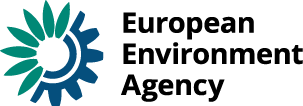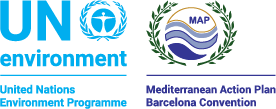EEA-UNEP/MAP partnership
|
Over the last 10 years, several joint initiatives have been undertaken by the EEA and UNEP/MAP to bring issues related to the marine and coastal environment in the Mediterranean to the attention of policymakers and to create public awareness. Such cooperation has included the exchange of information, studies and joint reports and publications. To reinforce it and to develop a structured and systematic way of working together, the EEA and UNEP/MAP established the first joint work plan in 2006-2008. In April 2016, the framework of this work plan was extended with a new joint work plan — a new path for 2016-2021, which underlines the importance of joint efforts to streamline information delivery and dissemination to support the implementation of relevant policies and influencing decision-making.
|
 |
Through this agreement, both parties intend to strengthen their mutual partnership and increase the effectiveness of their work through synergies and complementarities. Its timing takes into consideration recent policy developments and shared achievements and aims to underline the role of information delivery and dissemination in supporting the implementation of these policies, in particular the Mediterranean Strategy for Sustainable Development (MSSD) 2016-2025, the UNEP/MAP Mid-Term Strategy 2016-2021, the joint work programme between the European Commission and UNEP/MAP, the Strategic Partnership between UNEP and the European Commission, the EU Enlargement Policy, the ENP, the EU MSFD, and the Union for the Mediterranean (UfM) Horizon 2020 Initiative. By joining forces, the EEA and UNEP/MAP will make more efficient use of their resources and build on each other’s strengths.
This agreement builds on the successful outcome of the close collaboration between the EEA and UNEP/MAP in the implementation of the EU-funded European Neighbourhood and Partnership Instrument (ENPI) SEIS project during the period 2010-2015. Under that project, the two organisations provided strong support to the UfM H2020 initiative for a cleaner Mediterranean by co-chairing its Review and Monitoring Group and jointly preparing the first regional Mediterranean assessment, Horizon 2020 Mediterranean report — Toward shared environmental information systems, launched at the UfM Ministerial Meeting on Environment and Climate Change in May 2014 in Athens, Greece.
The following activities have been identified as areas of mutual interest and benefit:
- state of the environment reports, including socio-economic aspects;
- data, indicator and scenario-building activities;
- networking and partnership building;
- a shared information and communications infrastructure.
Most activities identified in this agreement do not represent new areas of work for the two organisations involved. Rather, this document emphasises the need for continuity and strengthening their cooperation even further. For certain activities to be fully implemented, additional resources are needed. From this perspective, the EEA and UNEP/MAP signed a joint partnership for the implementation of the EU-funded ENI SEIS II South Support Mechanism (2016-2019).
EEA-UNEP/MAP contribution agreement for joint implementation of the EU-funded project Implementation of the Shared Environmental Information System (SEIS) principles and practices in the ENP South region — SEIS support mechanism (ENI SEIS II South) (signed in September 2016, EUR 1 800 million over the period 2016-2019).
The work under the ENI SEIS II South Support Mechanism builds on that undertaken by the preceding ENPI-SEIS project (2010-2015), and its joint implementation by the EEA and UNEP/MAP ensures synergies with a number of relevant parallel activities, such as the EEA’s cooperation with its member and cooperating countries on the implementation of the MSFD, updating national action plans (NAPs), implementation of the ecosystem approach (EcAp), and implementation of other regional strategies/action plans, among which are the Mediterranean Strategy on Sustainable Development (MSSD), the Integrated Monitoring and Assessment Programme (IMAP) and the Sustainable Consumption and Production (SCP) Action Plan, all under UNEP/MAP.
In recent years, the UNEP/MAP Barcelona Convention has been increasingly working towards implementing a holistic approach encompassing environmental data and information from all the Mediterranean countries (Southern, Northern and Eastern shores) and regional sources. Building on previous initiatives and activities, as well as progressively integrating existing information systems, UNEP/MAP aims to improve accessibility and information sharing over institutional, administrative and international boundaries and thereby support the implementation of SEIS practices and principles in the Mediterranean region.
The UNEP/MAP contribution to the implementation of ENI SEIS II South Support Mechanism covers coordination, technical and scientific support for the following work packages (WPs) in particular:
- lead the implementation part of WP1 (In-country support to implementation) using the same approach taken by the EEA;
- co-lead the work packages on indicators and assessments and infrastructure and WP4 with EEA;
- lead the thematic cluster on waste;
- lead the thematic cluster on industrial emissions;
- co-lead the thematic cluster on water with EEA;
- co-lead the cross-cutting cluster with EEA;
- co-lead management and coordination with EEA (dedicated UNEP/MAP SEIS project manager).


